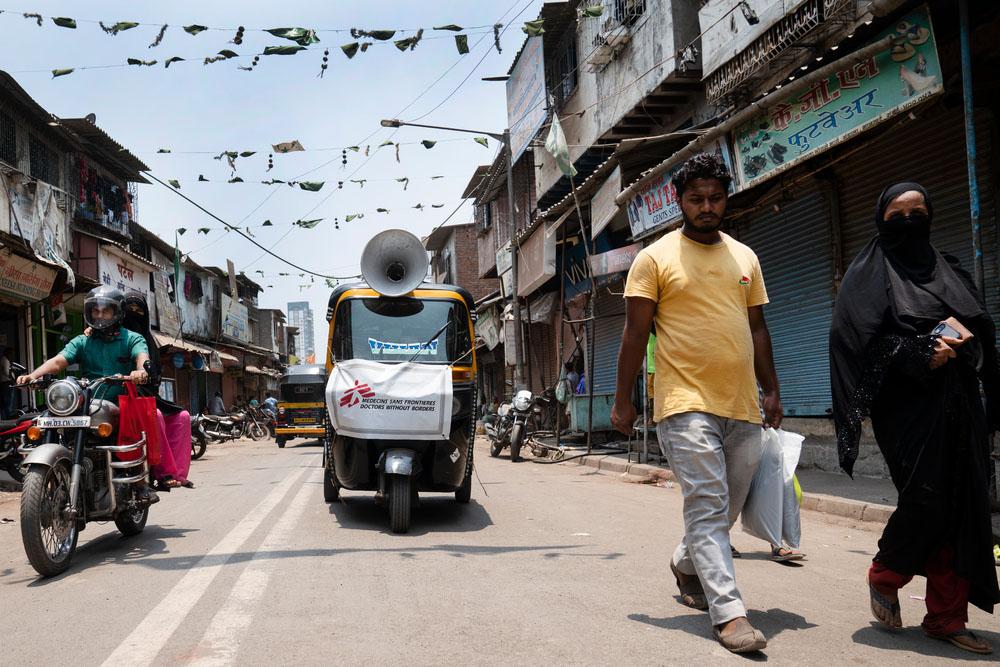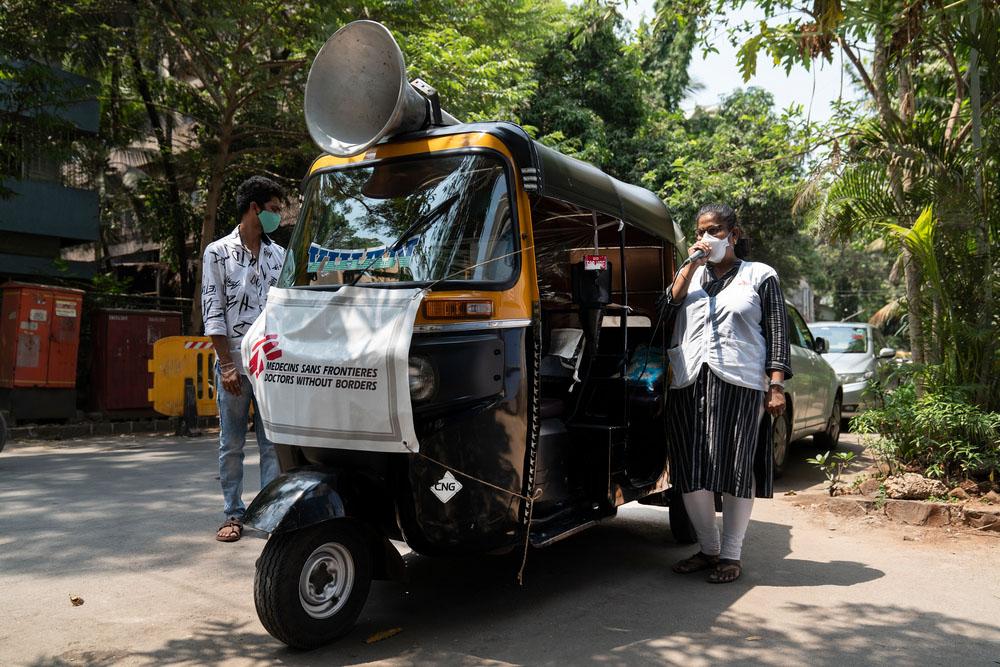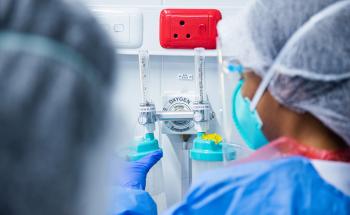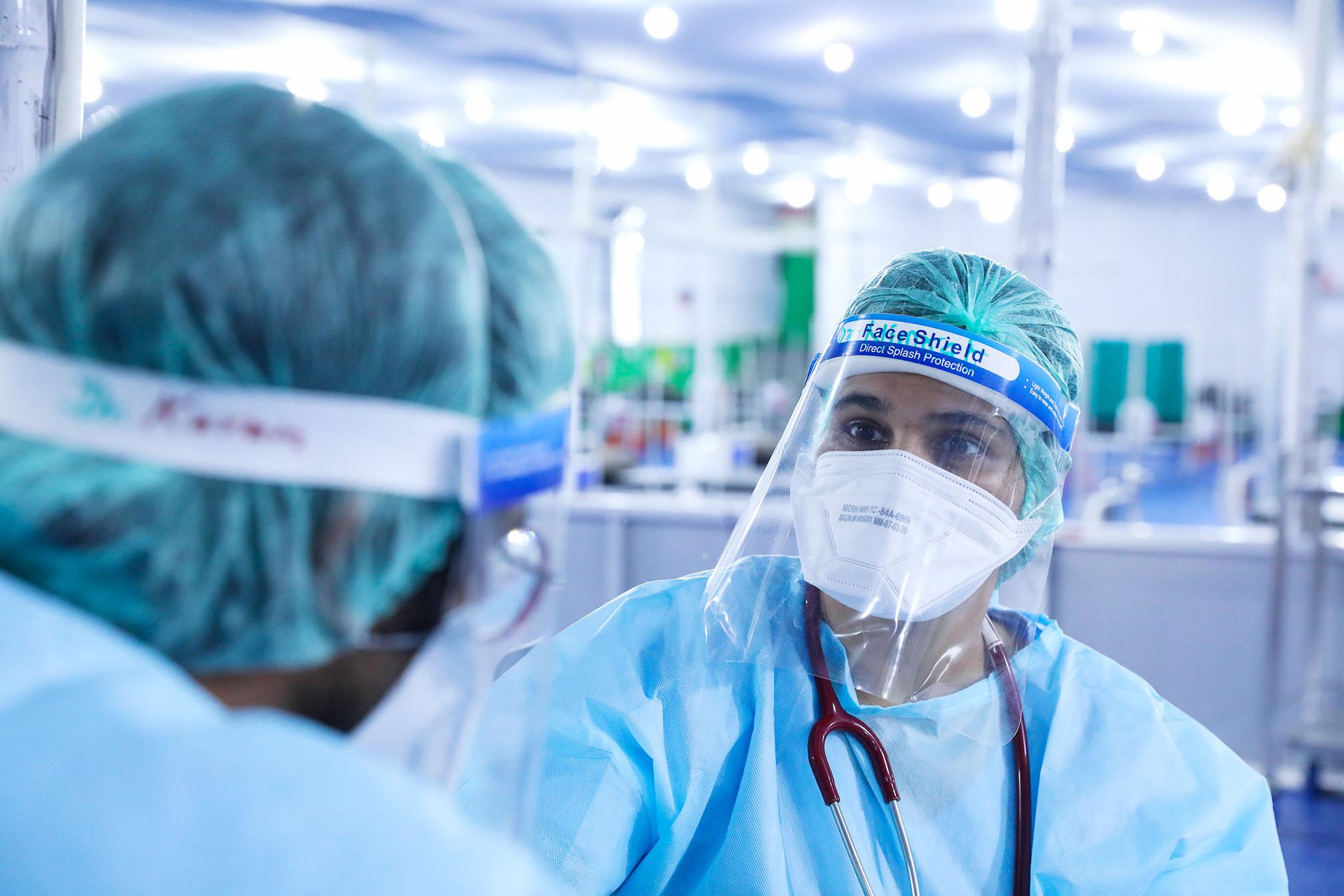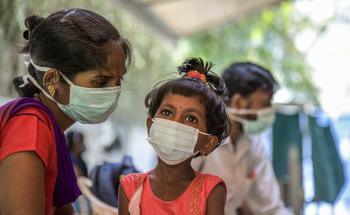MSF medical coordinator, Mabel Morales sheds light on COVID-19 second wave currently spread across India and how, despite it being so difficult, she and her team are dedicated to working together to save the lives of the people they see.
"The situation in India and in Mumbai is very bad. It’s critical across the country. We’re providing medical support to one of the COVID-19 treatment centres here in Mumbai with 1,000 beds. There are many, many cases and the last week of April has seen a real increase. The health workers are overwhelmed and exhausted. There is so much work to do.
The authorities here are well-organised and are adapting to the situation as it evolves as best they can. But as the cases increase, it’s getting harder to find beds. They’re calling from hospital to hospital trying to refer patients, but they’re struggling.
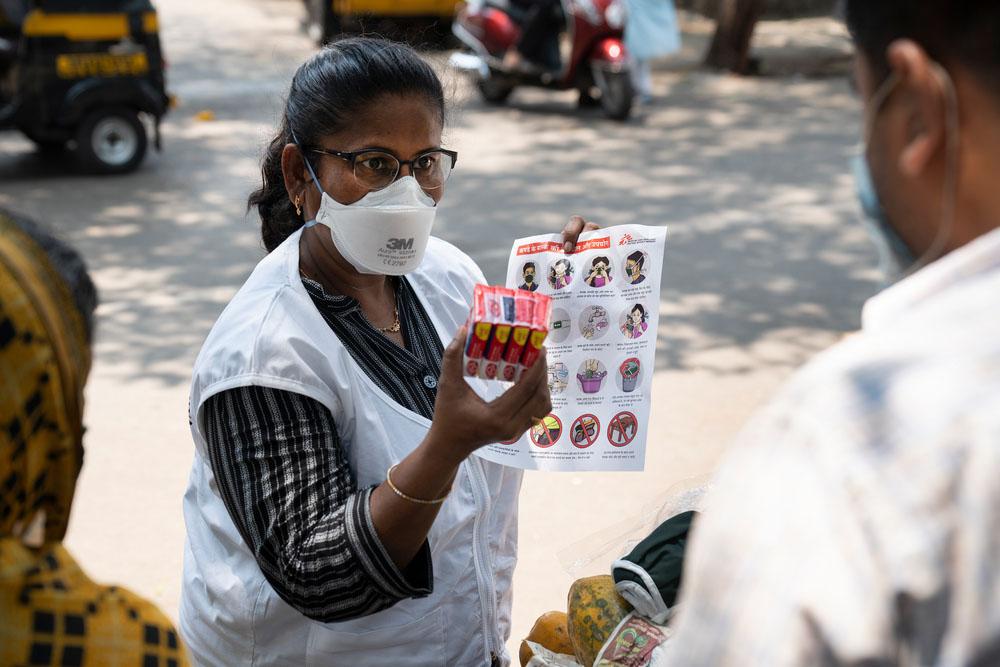
How do you talk about isolation or social distancing when you have a whole family of eight people living in one room with no ventilation? How do you talk about the need to wash hands regularly when so many people have no easy access to water? How do you institute preventative measures in a situation like that?Mabel Morales, MSF Medical Coordinator
"Despite the difficulties we’re facing, the morale in the team is very high. Everybody is extremely committed. Some of them worked with us in our first COVID-19 intervention here in India during the first wave. As soon as we called them, they immediately came and joined us. That was a real boost for us. There are so many more people infected with COVID-19 now, that the staff we have isn’t enough. We still need to recruit more.
The team is working six days a week in eight-hour shifts. The conditions are not easy in the treatment centre. There are tents, and inside it’s very hot. Add to that the fact that the team is kitted out in PPE with face masks and gloves and everything else, it’s a tough environment.
"The situation is terrible, but the commitment and the dedication of the staff is extraordinary. There is a very strong feeling of solidarity in the team. People are so committed to helping the patients.
No one was ready for the second wave. It caught everybody by surprise. In a very short time, it’s turned into a major crisis. It’s so much worse this time and it was so sudden. MSF teams had concluded their support to the COVID-19 centre in Mumbai in mid-February as we had hardly any cases. But we kept the community activities going and kept in contact with the people who had worked for us the first time.
We’re doing a lot of work at the community level and are focused on vulnerable people and people with chronic health conditions and with HIV. People’s living conditions are very challenging.
How do you talk about isolation or social distancing when you have a whole family of eight people living in one room with no ventilation?"
How do you talk about the need to wash hands regularly when so many people have no easy access to water? How do you institute preventative measures in a situation like that? A lot of the key messages about avoiding transmission just don’t work in these situations.
The needs here are so great and what MSF is doing is just a small part. But we need to be here.
Staff from other hospitals are coming to us to take part in the training and we’re able to support them and share what we know. We all feel a strong sense of solidarity with our patients and with the staff. I feel that we’re in the right place and we’re all working together. It’s hard work, but I’m happy to be part of it.”
